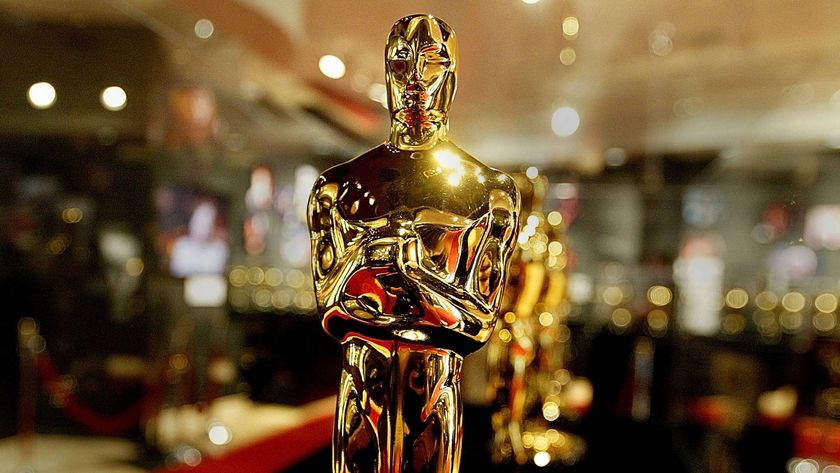6 games that bleed into the real world
ARG-bargy

Ok, first things first: what's an ARG? The acronym stands for 'Alternate Reality Game', which basically means it's a game that's dressed up as... something else. ARGs usually run across different forms of media to act as viral marketing for... yeah, something else. They work by blurring the line between fact and fiction, reality and game world, which usually means people talk about them outside of their target audiences. They bleed into reality.
Being at the cutting edge of technology, video games often use ARGs to feed secrets to the community or tease new releases. Not only do they give fans something to chat about, they aim to blur the lines between game and reality, to make people think about the franchise beyond regular previews, reviews and news stories. That's the theory, anyway. Here are 6 genuinely smart ARGs that have been used to promote your favourite games.
Watch Dogs - We Are Data
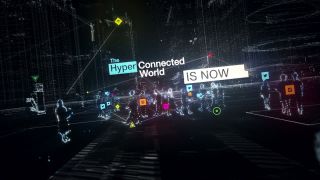
Watch Dogs is all about interacting with a connected, data-rich world. In this alternate reality a whole wealth of information can be found out about a person at the touch of a button. But how 'alternate' is this reality? And are Ubi actually spreading Watch Dogs into real life using a smart ARG?
Alternate Reality Games (ARGs) have been used to market all forms of media for years now, but the folks at Ubisoft are raising the bar for Watch Dogs. We Are Data is a website which collates all sorts of data from across London, Paris and Berlin. Clicking on a specific area provides information such as the location of CCTV cameras, traffic lights, ATMs and mobile/ electromagnetic signals. It also takes information from social media, showing you peoples Tweets and Instagram uploads. Cool? Very. Slightly creepy? Quite possibly. Here are some of the more interesting ARGs from gaming history.
Halo 2 - I Love Bees

One of the highest profile ARGs was part of the viral marketing campaign for Halo 2. A hidden message in a trailer for the game sent the more observant viewers to a website for beekeeping which had apparently been hacked by an unknown entity. Players solved puzzles in order to unlock an in-depth backstory and audio logs which were posted to the site. Messages were sent via email and text message, and even resulted in some real life meet-ups with the games characters.
A huge buzz (I went there) was created around the game, with over three million people visiting the website in just a few months. I Love Bees piqued the interest of many fans, who swarmed game sites and forums for fresh information about Halo 2.
Bit Trip Beat - Commander Video
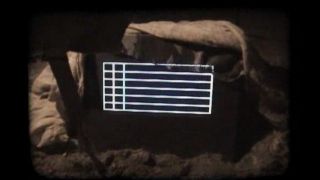
An anonymous video was circulated in 2008 showing two Germans uncovering a monitor showing strange images. A disembodied, robotic voice calls out I am only a man, scaring the men into running away. Cryptic messages were left across various websites, directing people to the Commander Video page.
Sign up to the 12DOVE Newsletter
Weekly digests, tales from the communities you love, and more
From here, Commander Video sent out coded messages to his recruits, detailing missions. The ultimate aim was to market BIT. TRIP BEAT. Players were tasked with talking about the game online, and even setting up a Wikipedia page for it. Sadly, details of the game were released early by Nintendo Power, bringing an end to the fun of the Commanders followers.
BioShock 2 - There is something in the sea
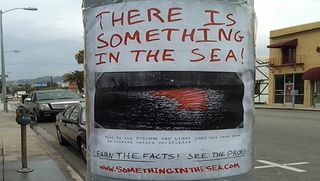
In March 2009, hand made posters started popping up across the east coast of America exclaiming There is something in the sea! After a bit of digging, people discovered the tale of Mark Meltzer and his search for his missing daughter Cindy. He began sending information to people who reached out to him, containing hints about a mysterious city and monsters stealing children.
This was, of course, all a marketing ploy for BioShock 2. It was designed to introduce the Big Sisters of Rapture, unstable young women in powerful armour who protect the ADAM harvesting Little Sisters. So, no need to start electronic tagging your daughters in case of monster attack just yet.
PlayStation Home - Xi
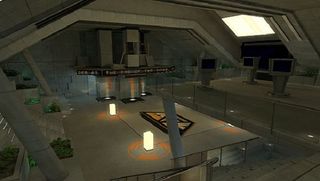
Xi was an ARG which took place across PlayStation Home in 2009. Clues were hidden on the menu screen, and within videos on the social service. Players not only had to figure out what Xi was, but also had to help find Jess, one of the alpha testers on Home who had gone missing.
A few months of fragment and butterfly collecting took place across PlayStation Home, eventually stretching to YouTube and even real world locations such as Sydney, Australia and on eight billboards across Europe. It was highly popular too, with reports of over five million visits to the areas related to the game. Players were granted digital rewards such as Trophies and cosmetic items for avatars based on their performance.
Portal 2 - Potato Sack
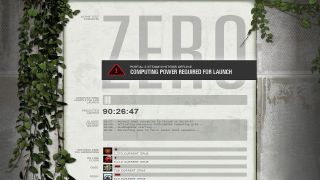
You remember the potato section from Portal 2, right? Well the seeds of that were first planted before the game even came out. The Potato Sack bundle was released on Steam, featuring games like Super Meat Boy and Amnesia: The Dark Descent at 75% off their normal price. Each of the 13 games in the collection received an update, replacing some visual assets with potato themed graphics.
Over the next week or so, more updates were added, tasking players with solving various puzzles within the games. Completing these challenges would charge up GLaDOS, and players were promised the reward of unlocking Portal 2 ten hours early. Admittedly not the most exciting outcome, but it certainly raised awareness.
You can't handle the truth
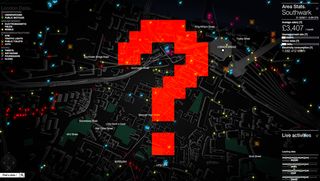
So there are some of the best Alternate Reality Games from history. Some creepy, some funny, but each of them blurs the line between gaming and reality in exciting ways. Have you ever been involved in an ARG? Sound off in the comments. But make sure the Watch Dogs arent looking over your shoulder.
Want more alternate reality shenanigans? Here's Everything We Know About Watch Dogs. Not for you? Here are 11 Random Objects That Look Like Video Game Developers. Just because.
You can often find Matt writing words about games, especially at a time when he was a freelance games journalist. However, nowadays Matt is a producer for CSGO and League of Legends, and an interviewer for Dexerto.
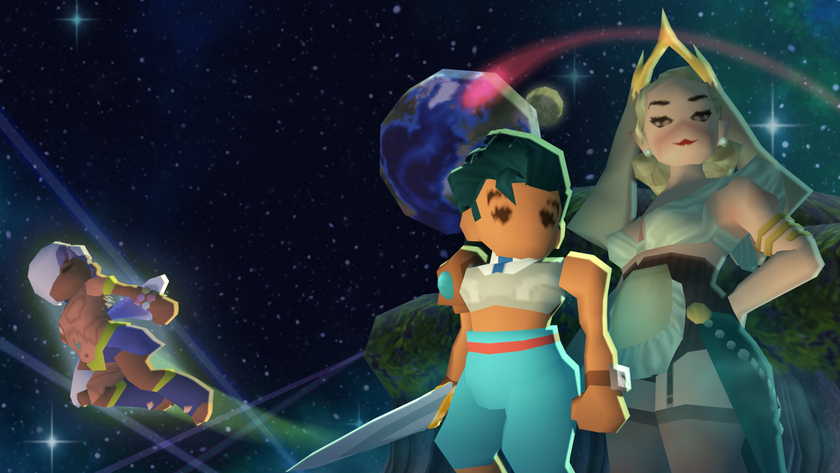
The devs of a legendary indie Zelda-like have a new retro action game with "bumpslash" combat, and its Steam Next Fest demo is a gem: "Fans of Ys, take note!"
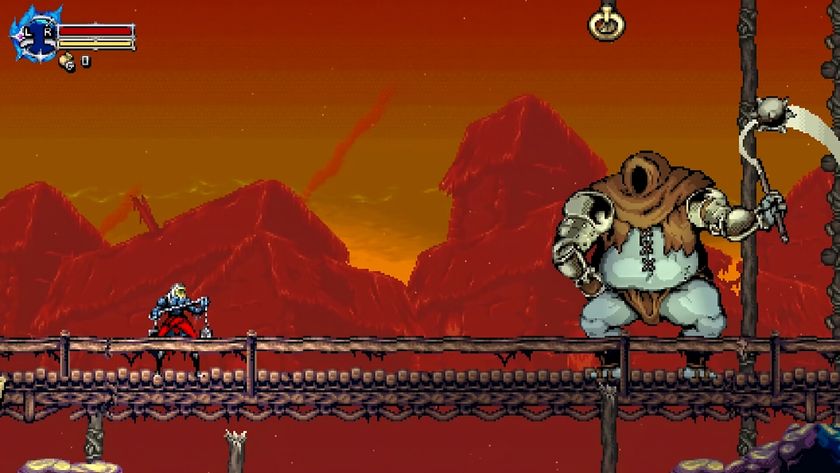
And you thought Hollow Knight: Silksong is late – 37 years in the making, this retro Metroidvania has a whip-smart Steam Next Fest demo that's as Castlevania as it gets
Most Popular




